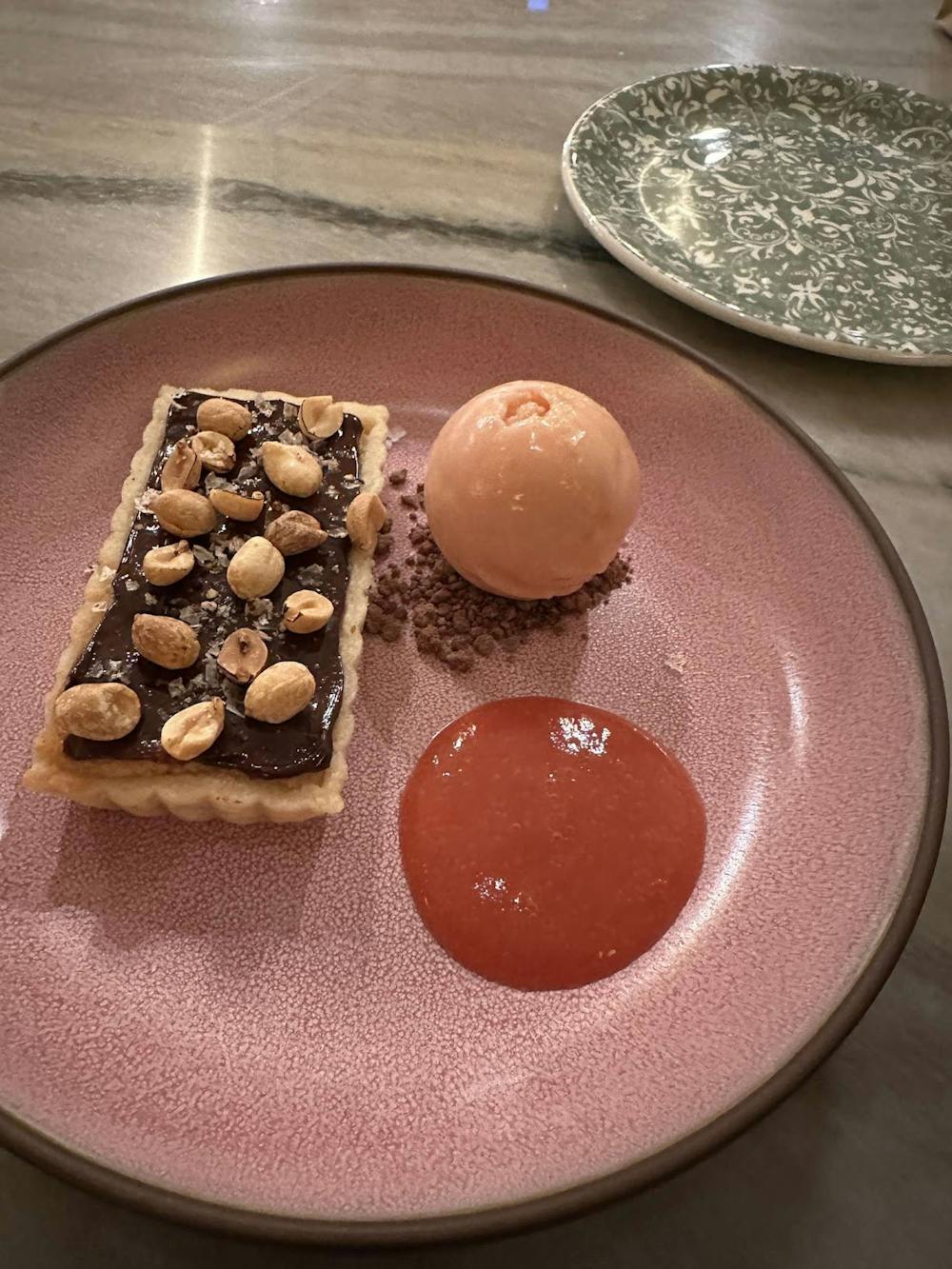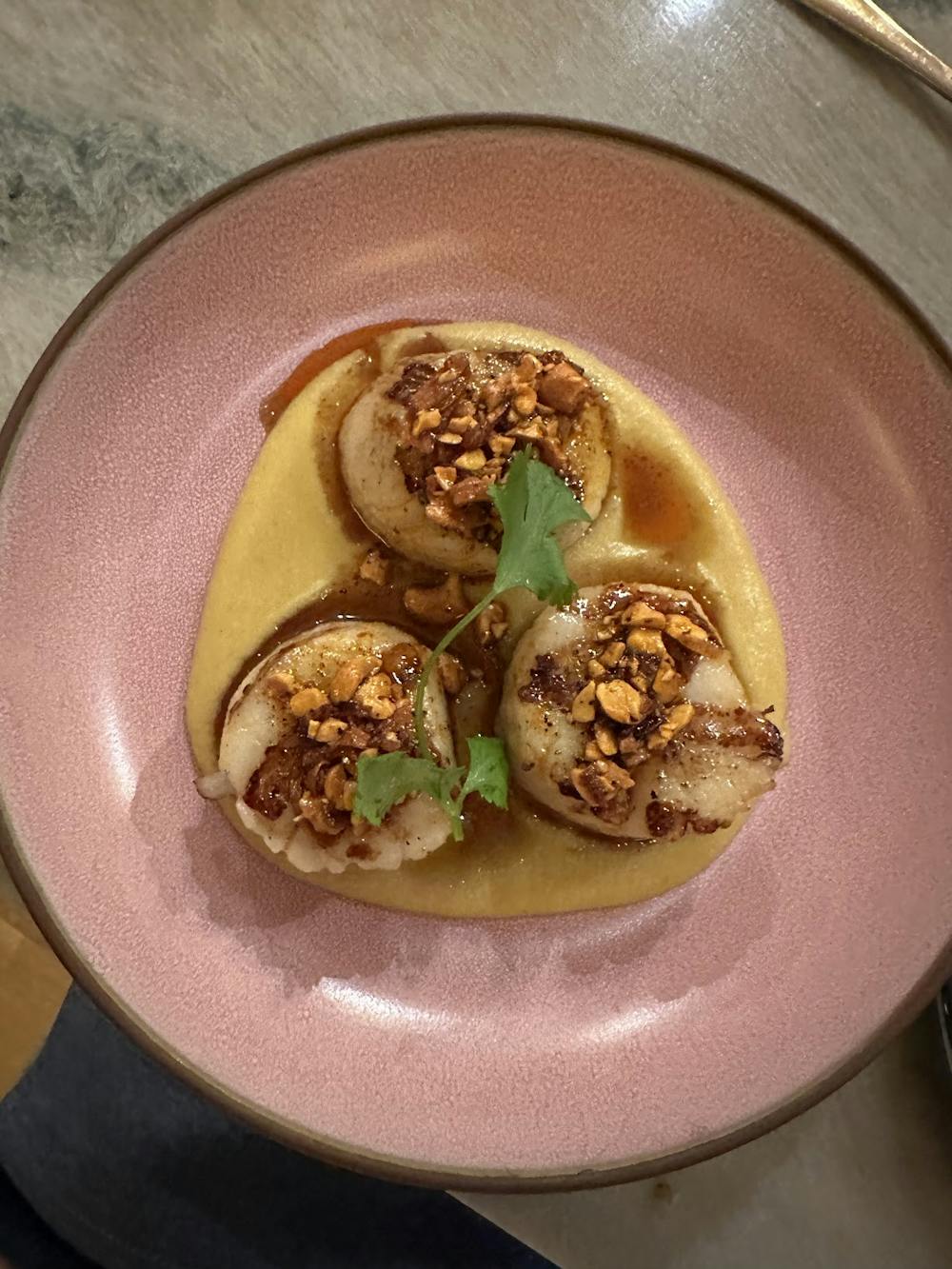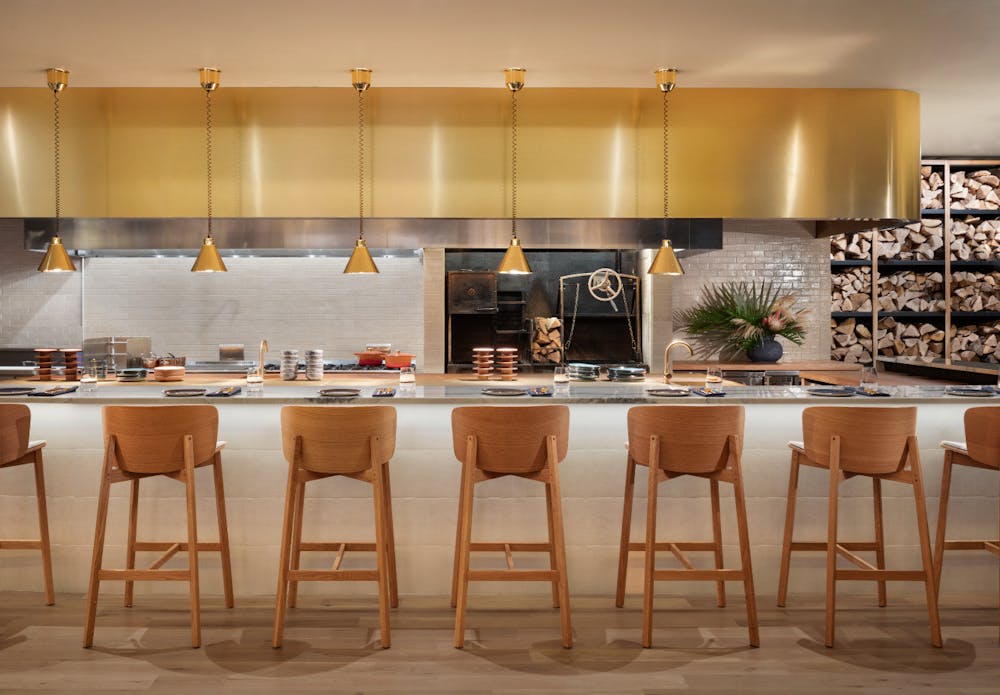The Beacon recently assigned me to write a food review of Kann, a live-fire Haitian restaurant that has captured national attention, earning the title of Best New Restaurant of 2023 and securing a spot among America’s top ten restaurants.
But, as I stepped into the heart of Kann's main dining space, a lively atmosphere adorned with natural wood and an abundance of greenery, it became clear to me that my review would explore more than Kann's culinary offerings.
Before Kann, I had never been to a restaurant that offered such an immersive experience where the backstory of each dish was laid out to diners. The inclusivity was palpable, with the restaurant and its owner infusing the LGBTQIA+ and POC communities into the DNA of Kann while celebrating the rich flavors of Haitian cuisine.
First things first: Kann’s food is exceptional. The several awards that the restaurant and its owner have received speak to this. But, the food itself speaks louder — and more than justifies the months-long wait for a reservation and the high price point of the dishes.
For my starter, I ordered the akra, crispy taro root fritters with remoulade. The akra were perfectly fried and accompanied by a lingering spice from Scotch Bonnet chili. My drink, the Grenadia, a zero-proof blend of passion fruit, vanilla, star anise, cordial, chicha, banana, ginger and soda, provided a necessary fruity and sweet contrast to the akra's heat.
For my entree, I chose the herb-marinated King Salmon and diri ak sos pwa. The crispy skin of the salmon paired perfectly with the soft rice. And dessert? The peanut and guava tart — decadent, with rich chocolate, bright guava and a hint of salt and crunch from the peanuts.

By the end of my meal, I found myself even more interested in the founder of the restaurant, Gregory Gourdet, who I had read about a bit before making my reservation.
I first encountered Gourdet on TV during the COVID-19 pandemic, a period when I spent most of my evenings nestled on the couch, indulging in reruns of Top Chef. Back then, Kann was merely a dream for Gourdet – a restaurant concept inspired by childhood memories of living with his maternal grandparents in Haiti while his parents worked to afford a living in Brooklyn, New York.
“I remember my time there in snatches,” Gourdet said in his cookbook "Everyone’s Table.” “The air, thick and hot. The tidy single-story house with a big porch…Yanking Scotch Bonnets from the overgrown plants in the yard with my cousin Frederick and competing over who could endure the biggest bite.”
Since its official opening in 2022, Gourdet has used Kann as a platform to address the shortcomings of the restaurant industry. The first issue he tackled: worker equity.
At Kann, Gourdet implemented a model where all staff members – except managers – receive equal wages and share tips equally. While he's not the first chef to adopt such measures, Gourdet sees this as a critical step toward achieving worker equity.
“The pandemic has really ravaged us as a community, and the reckoning has really ravaged us,” Gourdet said during an interview with The New York Times. “I’m here to see it get rebuilt.”
Gourdet also places a high value on inclusivity at Kann. Being a queer person of color in an industry largely dominated by white cisgender men, he is committed to hiring underrepresented individuals, with a majority of his staff identifying as women and non-binary.
“I could have staffed this place with a bunch of white males in, like, literally five minutes,” Gourdet said in an interview with The New York Times. “But as a gay Black man, and with everything that went on with the reckoning and George Floyd, I didn’t want to do that.”

Inclusivity extends to every facet of the dining experience at Kann, with a sustainable local focus and a menu free of gluten and dairy. Additionally, the menu features several thoughtfully crafted zero-proof drinks, as Gourdet openly acknowledges his journey as a recovering addict.
“We’re determined to create an inclusive imbibing and dining experience for all guests — including those who opt not to drink alcohol for any reason,” Kann's website says. “Chef Gregory Gourdet, who identifies as sober himself, set out to develop thoughtful Zero-Proof and Non-Alcoholic drinks with just as much intention as our full-spirit offerings.”
And, since its conception, Kann has been meticulously planned to guarantee the best and most informative dining experience. Gourdet strives for every diner to leave with a better understanding of Haitian cuisine and its origins.
“The truth is, brutal colonialism forged the global cuisine we love,” Gourdet said in his cookbook "Everyone’s Table.” “Slavery and indentured servitude forced so much culinary fusion. In Haiti, to name just one example, Spanish invaders brought disease that nearly killed the entire native population. From the ashes, a new cuisine emerged.”
Gourdet's dedication to educating diners is evident in the dining experience at Kann, as servers guide us through the dark leather-bound menu, reciting information on the African and Caribbean diaspora. They emphasize that understanding these influences is essential for appreciating the history behind Kann’s dishes.
Overall, the Kann experience, from the food to the service to the ambiance, was exceptional.
That said, it’s definitely more expensive than dining options around campus — an average meal at Kann can exceed $100, which is not exactly affordable for college students.
But, to enhance accessibility, Gourdet has shared some of his recipes for free online, allowing anyone to recreate his dishes at home, bringing Haitian cuisine into their kitchens and daily lives.
“For me, food has always been about connection — the stew’s in my mom’s pot, the spices ferried to Queens by my aunts and cousins, the first grilled fish I ate on a Haitian beach,” Gourdet said in his cookbook "Everyone’s Table.”

And, you get what you pay for. Kann’s ambiance, cuisine and attention to detail makes the experience worth every penny.
An important note for those with hearing difficulties: Kann can be quite loud. The bustling atmosphere, while energizing, might make it challenging to catch your waiter's attention or communicate effectively. This is something to keep in mind if hearing accessibility is a concern for you.
As I glance at my Kann receipt pinned to my corkboard, I am reminded that Kann is more than just a trendy restaurant that has captured national attention — it's a place that promotes shared experiences, amplifies marginalized voices and progresses towards a more equitable industry. Kann epitomizes exceptional dining, and is worth the wait.
Julianna Pedone is the Sports Section Editor for The Beacon. She can be reached at pedone25@up.edu








